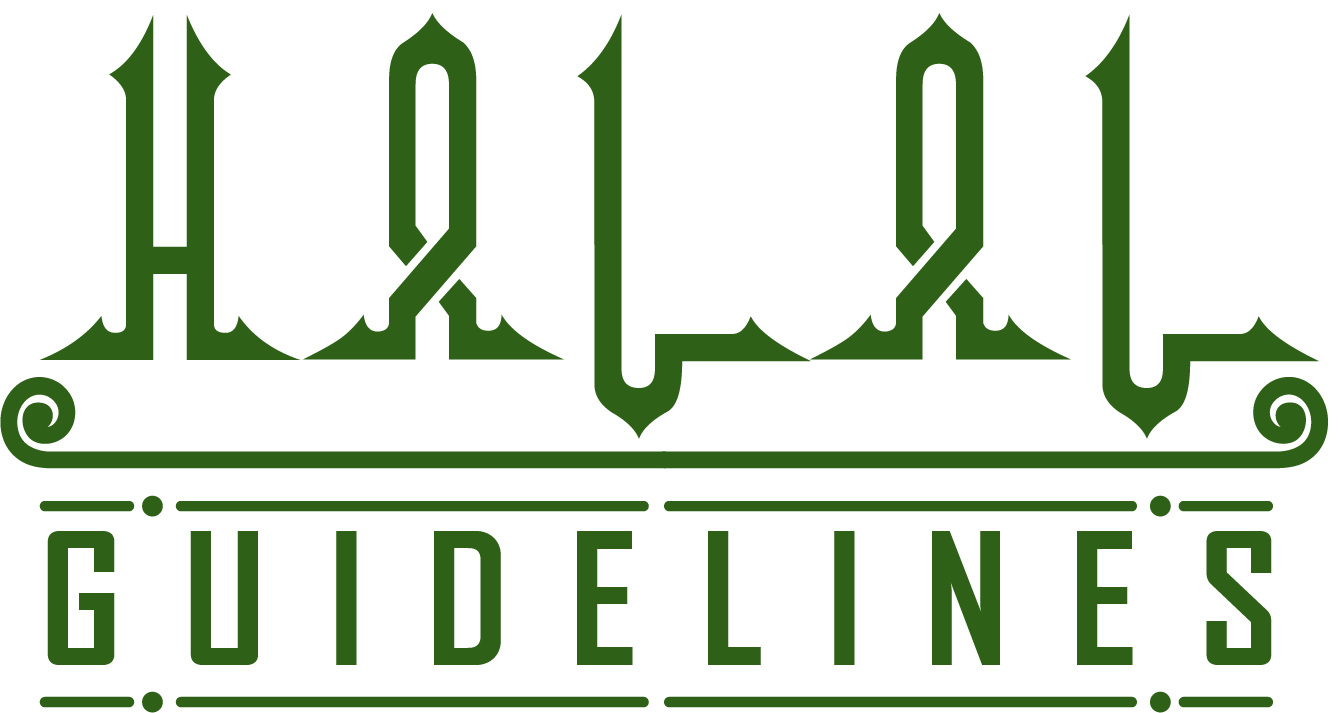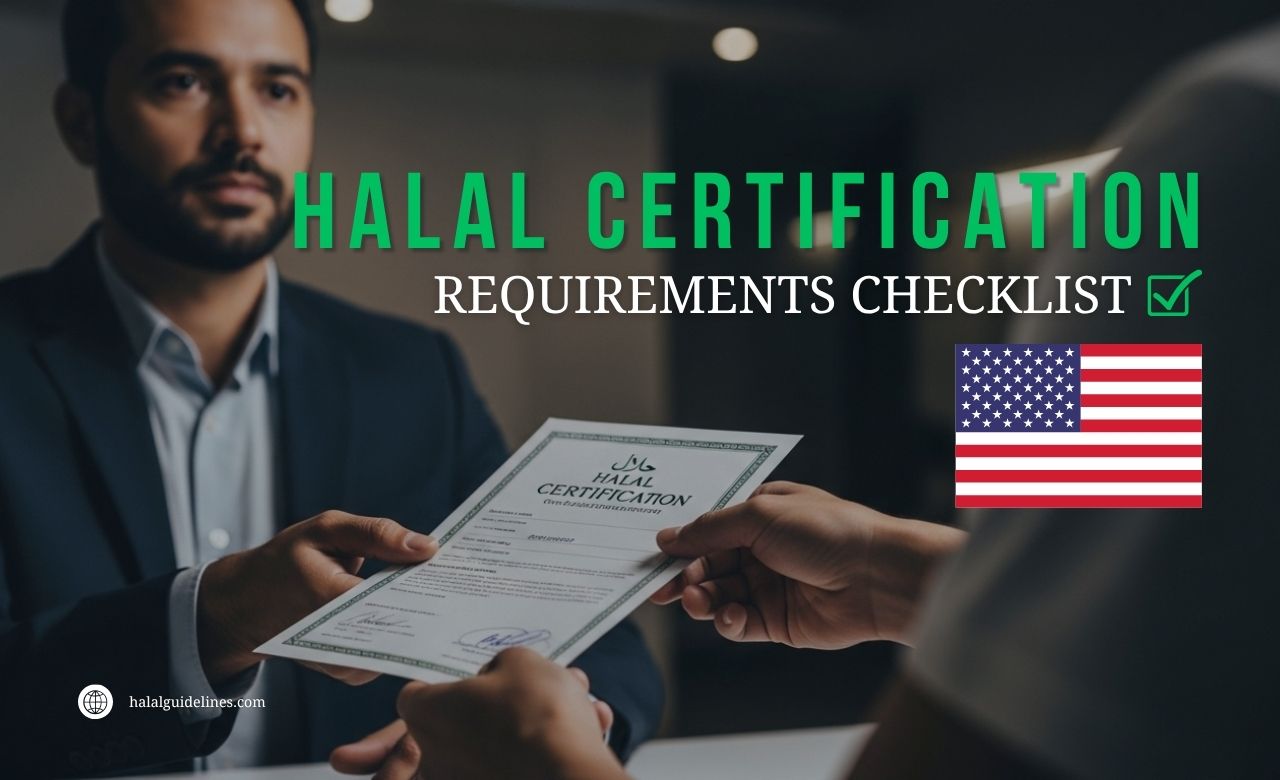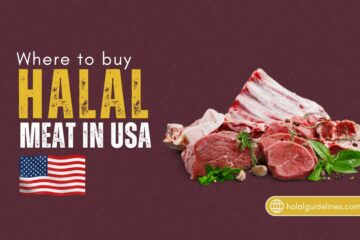Getting halal certification in the USA is a vital step for any business that wants to serve Muslim consumers with honesty and integrity. It demonstrates your commitment to providing products that adhere to Islamic dietary laws and ethical principles.
Every business can benefit from halal certification when aiming to meet these respected standards, from food manufacturers to cosmetic brands.
Below is a detailed list of requirements you must fulfill to get halal certification:
1. Product Ingredient Review
All ingredients must be free from pork, alcohol, and other haram substances. The review includes checking every element that goes into the product, even if used in small quantities.
Here are other substances that are also considered haram and must be avoided:
- Blood or blood-derived ingredients
- Meat from animals not slaughtered according to Islamic law
- Carnivorous animals and birds of prey
- Intoxicants and recreational drugs
- Gelatin derived from non-halal sources
- Enzymes from haram sources
- Lard and other pork fats
Ingredients should not only be halal themselves, but also sourced, stored, and processed in a halal-compliant way. Each component must be traceable and verified by halal certification bodies to ensure there are no hidden or doubtful substances.
2. Cross-Contamination Prevention
Preventing cross-contamination is crucial in maintaining halal integrity. Businesses must use separate equipment and utensils for halal and non-halal products. This includes cookware, storage areas, and transport containers.
The facility must also maintain a high level of cleanliness and hygiene, ensuring that no traces of haram substances come into contact with halal items.
3. Slaughter Process (For Meat Producers)
The slaughtering process must strictly follow Islamic rules. The animal must be healthy and treated with care before slaughter. It should be slaughtered by a sane, practicing Muslim who recites the name of Allah (Bismillah) before cutting.
A sharp knife must be used to minimize suffering, and the blood must be fully drained. These steps will make sure the meat remains halal and ethically processed.
4. Processing & Packaging
All machinery used in processing must be thoroughly cleaned and sanitized according to halal standards.
These standards include:
- Using cleaning agents that are themselves halal and free from alcohol or harmful chemicals
- Rinsing equipment thoroughly to remove all traces of previous substances
- This will make sure your tools are used exclusively for halal items whenever possible
This will make sure there is no contamination from non-halal substances. Packaging materials should also be halal-compliant and must not have been used previously for storing or transporting haram items.
Proper packaging protects the halal integrity of the product during storage and distribution, helping maintain consumer trust and religious compliance.
5. Documentation & Traceability
Accurate documentation is necessary to prove the halal status of all ingredients and processes. This includes maintaining a clear record of suppliers, transportation methods, and storage conditions.
Key documents that are required in the halal certification process include:
- Ingredient specifications and material safety data sheets (MSDS)
- Supplier halal certificates or declarations
- Process flowcharts outlining production steps
- Cleaning and sanitation logs
- Training records for staff on halal handling procedures
Each batch of product must be tracked from start to finish to ensure complete compliance. This transparency builds trust with consumers and certifying bodies.
6. Employee Training
Staff involved in the production and handling of halal products must receive thorough training on halal practices.
This includes knowledge of what is halal and haram, as well as the importance of cleanliness and avoiding contamination. Properly trained employees play a key role in maintaining the halal integrity of the entire operation.
7. Certification Body Inspection
Businesses must submit a formal application to a recognized halal certifying agency in the USA. After the application is submitted, the certification process begins with a review of documents and ingredients.
The facility is then subject to an inspection, during which every process is examined to verify that it meets halal standards. Inspectors look closely at all aspects of the operation.
Regular audits are carried out to ensure ongoing compliance, and the certification must be renewed as required to remain valid and trustworthy. This process ensures credibility, transparency, and full alignment with Islamic principles.
8. Labeling Requirements
All halal-certified products must display clear labeling indicating their halal status. The packaging should include the official logo of the certification body to give consumers confidence.
This labeling helps Muslim buyers quickly identify compliant products, building your brand’s credibility in the halal market.
9. Local and National Regulations
To meet halal standards, your business must also comply with all local and national regulations. This includes FDA and USDA guidelines, which oversee food safety and quality.
Operating within both Islamic and government standards demonstrates professionalism and earns greater trust from customers and authorities.
How to Get Halal Certification in the USA
If you’re wondering how to get halal certification for your business, the process may seem complex, but you don’t have to do it alone. Halal Guidelines, as the Best Halal certification service in the USA, makes it easy to obtain certification by guiding you through each requirement and connecting you with trusted certifiers.
We will confirm that your products meet all necessary standards and assist you in preparing for inspection. We make your halal journey smooth and successful from ingredients to labeling.
Visit us or Request a Quote and let our experts assist you every step of the way.
Halal Guidelines is your reliable partner to obtain halal certification in the USA. Reach out today and take the first step toward growing your halal-compliant business.







